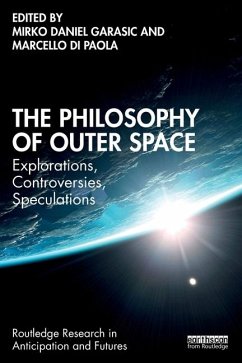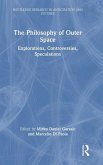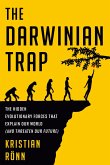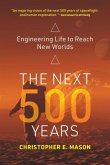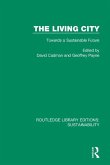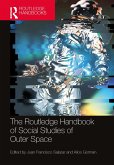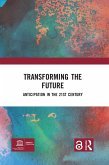This volume provides a rigorous philosophical investigation of the rationales, challenges, and promises of the coming Space Age.
Over the past decade, space exploration has made significant and accelerating progress, and its potential has attracted growing attention from science, states, businesses, innovators, as well as the media and society more generally. Yet philosophical theorizing concerning the premises, values, meanings, and impacts of space exploration is still in its infancy, and this potentially immense field of study is far from mainstream yet. This book advances outer space philosophy by integrating key scientific and societal debates sparked by recent developments in space research and activities with conceptual, existential, ethical, aesthetic, and political themes and concerns. It maps various regions of philosophical exploration, reflection, and speculation regarding humanity's present and future emanations into outer space, to promote a broad, rich, and nuanced societal debate regarding this transformative enterprise, which is as stimulating as it can be disorienting.
This book will be a fascinating read for academics, researchers, and students interested in philosophy, space studies, science and technology studies, future studies, and sustainability.
Over the past decade, space exploration has made significant and accelerating progress, and its potential has attracted growing attention from science, states, businesses, innovators, as well as the media and society more generally. Yet philosophical theorizing concerning the premises, values, meanings, and impacts of space exploration is still in its infancy, and this potentially immense field of study is far from mainstream yet. This book advances outer space philosophy by integrating key scientific and societal debates sparked by recent developments in space research and activities with conceptual, existential, ethical, aesthetic, and political themes and concerns. It maps various regions of philosophical exploration, reflection, and speculation regarding humanity's present and future emanations into outer space, to promote a broad, rich, and nuanced societal debate regarding this transformative enterprise, which is as stimulating as it can be disorienting.
This book will be a fascinating read for academics, researchers, and students interested in philosophy, space studies, science and technology studies, future studies, and sustainability.
"In an era where our understanding of the universe is expanding at an unprecedented pace, this book serves as an indispensable guide for anyone seeking to comprehend the philosophical implications of our cosmic pursuits. The Philosophy of Outer Space is a timely and thought-provoking contribution to the New Space Age. One of the strengths of this volume is its ability to appeal to both experts and newcomers to the subject. The essays are written with intellectual rigor, in a manner accessible to a broad audience. Whether you are an astrophysicist, a philosopher, or simply a curious reader, The Philosophy of Outer Space provides a rich and rewarding exploration into the intellectual landscape where space science and philosophy converge."
Julian Savulescu, Chen Su Lan Centennial Professor in Medical Ethics and Director of the Centre for Biomedical Ethics, Yong Loo Lin School of Medicine, National University of Singapore
"Outer space and its exploration raise deeply fascinating and fundamental philosophical questions about the meaning of human life, our place in the larger cosmos, whether we should try to spread to other planets, and much more. In this New Space Age, what used to be science fiction can quickly become a live possibility, and there is a pressing need for philosophical reflection about these and other questions. This excellent and absorbing book is an absolute must-read for anybody interested in this new philosophical frontier."
Sven Nyholm, Professor of the Ethics of Artificial Intelligence, Ludwig Maximilian University of Munich
"Anticipation research sometimes shows us that what is furthest away can bring us closest to ourselves. For humanity, living together on our planet Earth in interdependence with everything else, the perspective of outer space and our exploration of it can bring us close to ourselves, to the world around and within us and to the expansive possibilities of peace and freedom. This is a book of cultural renewal."
Johan Siebers, Professor of Philosophy of Language and Communication, Middlesex University London, UK
"Garasic and Di Paola have assembled an excellent group of experts who navigate with unparalleled clarity and depth the complex terrain where advancements of the space age intersect with the timeless inquiries of philosophy. From the ethical implications of space exploration to the existential questions raised by our place in the cosmos, this collection allows anyone interested in these topics to explore this complex intersection. The interdisciplinary approach of this volume ensures a comprehensive exploration of the scientific and technological dimensions, as well as the profound implications for our understanding of humanity."
Vardit Ravitsky, President and CEO of The Hastings Center, Professor of Bioethics at the School of Public Health at the University of Montreal, and a senior lecturer on Global Health and Social Medicine at Harvard Medical School
Julian Savulescu, Chen Su Lan Centennial Professor in Medical Ethics and Director of the Centre for Biomedical Ethics, Yong Loo Lin School of Medicine, National University of Singapore
"Outer space and its exploration raise deeply fascinating and fundamental philosophical questions about the meaning of human life, our place in the larger cosmos, whether we should try to spread to other planets, and much more. In this New Space Age, what used to be science fiction can quickly become a live possibility, and there is a pressing need for philosophical reflection about these and other questions. This excellent and absorbing book is an absolute must-read for anybody interested in this new philosophical frontier."
Sven Nyholm, Professor of the Ethics of Artificial Intelligence, Ludwig Maximilian University of Munich
"Anticipation research sometimes shows us that what is furthest away can bring us closest to ourselves. For humanity, living together on our planet Earth in interdependence with everything else, the perspective of outer space and our exploration of it can bring us close to ourselves, to the world around and within us and to the expansive possibilities of peace and freedom. This is a book of cultural renewal."
Johan Siebers, Professor of Philosophy of Language and Communication, Middlesex University London, UK
"Garasic and Di Paola have assembled an excellent group of experts who navigate with unparalleled clarity and depth the complex terrain where advancements of the space age intersect with the timeless inquiries of philosophy. From the ethical implications of space exploration to the existential questions raised by our place in the cosmos, this collection allows anyone interested in these topics to explore this complex intersection. The interdisciplinary approach of this volume ensures a comprehensive exploration of the scientific and technological dimensions, as well as the profound implications for our understanding of humanity."
Vardit Ravitsky, President and CEO of The Hastings Center, Professor of Bioethics at the School of Public Health at the University of Montreal, and a senior lecturer on Global Health and Social Medicine at Harvard Medical School

